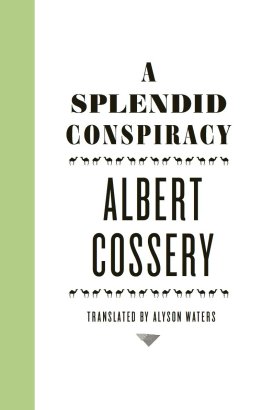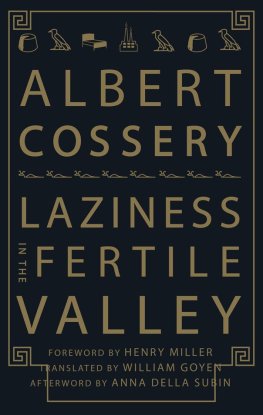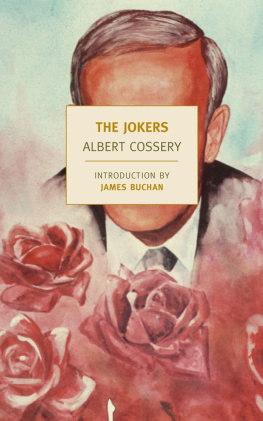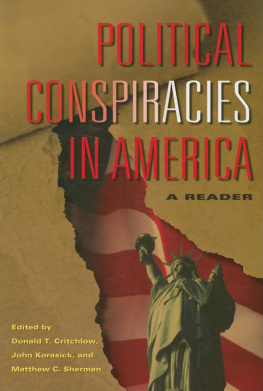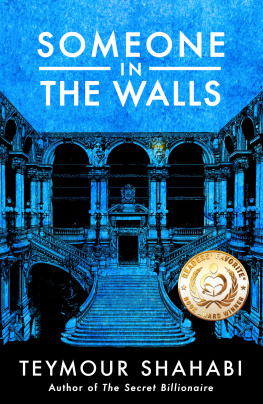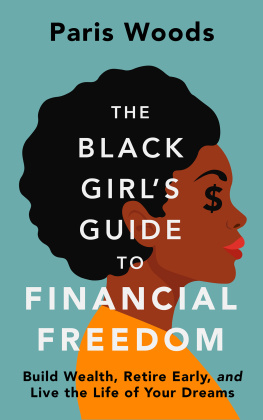Albert Cossery
A Splendid Conspiracy
seated at the caf terrace, Teymour felt as unlucky as a flea on a bald mans head. His entire bearing expressed idleness, morbid emptiness, and a soul-afflicting desolation at this memorable moment when he was rediscovering his home town after six years spent abroad. His surfeit of bad luck conferred a kind of fatal prestige on him, making him resemble a dethroned monarch, victim of collective treason. He had a wild look about him and seemed paralyzed by pain a suffocating pain that intensified as his gaze attempted, with extreme reluctance, to take in his dull surroundings. It was as if everything he saw had a gift for reinforcing his suffering. From time to time he closed his eyes, and his face assumed an expression of nostalgic ecstasy, as if he were withdrawing into a world of gracious memories to which he was still bound by almost fleshly ties. Rather than bringing him relief, however, these fleeting journeys into the recent past only increased his suffering in contrast to the implacable reality assailing him as soon as he reopened his eyes. He tried to hold back his stinging tears of helplessness and resentment, for, despite his utter despondency, he realized how odd he must look to the few customers scattered about the terrace, all of whom were beginning to observe him with some alarm. He could certainly expect no consolation from these obtuse minds incapable of appreciating the immeasurable torment of his situation. How could he explain to them that the reason for his despair was neither financial ruin nor the loss of a loved one, but simply the sight of his native city and the terrifying prospect of having to stay there until he perished from boredom? A confession of this sort would have no chance of being understood by these boors who obviously thought they were living in an enchanted city. They would never believe there existed other places on earth more delightful than their own town. Teymour envied them their ignorance; they, at least, were not suffering and had neither the desire nor the ability to indulge in comparisons. For him, alas, this was not the case.
He was a young man, some twenty-six years old, dressed with a stylishness that did not bode well in this especially backward provincial town. His clothing was both eccentric and refined; the cut and quality of the fabric signaled an obviously foreign origin. Certain items his off-white trench coat, for example could easily have caused him to be mistaken for a tourist were it not for the fact that no tourist had ever strayed into this city since the dawn of its days. In addition to this almost subversive sartorial finery, a great self-assurance was discernible in him, an ease of manner and a distinction that had clearly been acquired across the seas in the company of a privileged race plunged in the pleasures and splendors of great world capitals. To his perceptive compatriots his remarkable air made him as conspicuous as a belly dancer exposing herself on stage. Teymour had not anticipated the perils of such an encounter, and he began to dread the malicious comments that his fabulous attire would surely provoke. Would he be mistaken for one of those new-generation policemen who had descended on the boat that had carried him home as soon as it had touched shore? They, too, wore trench coats not as well-cut as his, its true and that was all it would take to mislead these uncouth provincials. He recalled how the officials had interrogated him in a nasty, suspicious tone of voice, as if he were a notorious assassin and not the son of a notable returning to his country after several years of study abroad. Hed had to pull out his chemical engineering diploma to mollify them and inspire some respect. It was the first time he had made use of it, and he was highly satisfied with the effect it produced on these figures of authority, so full of their own importance. Still, he retained a rather unpleasant memory of the experience, and the thought that he could be mistaken for a member of this sinister crew significantly exacerbated his unhappiness.
Three days had gone by since Teymours homecoming, but only that morning had he ventured out of his fathers house. For three days he had done nothing but bemoan his fate only the thickness of the walls prevented the sonorous sighs he heaved from seeping outside. At last he arrived at the conclusion that he was acting like a child by trying to delay the inevitable. He had to submit to the awful fate awaiting him, that is, to begin once again to live the life of a mole in his native city something he could only imagine with terror and trepidation. And so he had embarked on this mournful pilgrimage with the courage of a condemned man heading for the gallows, desperately hoping to find in it some faint glimmer of comfort. Now, however, everything appeared more dismal, more devastating than he could possibly have imagined even in his darkest moments, starting with this caf where he had been a regular customer in his youth. At the time, it had been called the Lighthouse and in Teymours memory it had been lavish and extremely chic; he used to strut about it from morning till night in the company of others his age who filled their idle lives by flaunting their brand new erotic knowledge. Where he had once thought he was rubbing shoulders with genuine opulence, he was now alarmed to find a sordid atmosphere. Yet it was still the same caf; only the sign was new. It was now called The Awakening, no doubt because it was located next to a statue that had been erected on the square in a spirit of renewal during his absence. The square itself, he now realized, was nothing but a vast, rectangular wasteland bordered on three sides by tall houses with peeling facades and barred windows suggestive of old abandoned prisons, and on the fourth by the muddy river that ran through the town. Under the gray November sky, the statueThe Awakening of the Nationstood imposingly on its pedestal, addressing its futile call to eternity. It represented a peasant woman in stylized dress, arm extended enthusiastically toward the poor districts across the river as if to denounce the torpor of the residents; in reality, however, she seemed to be lamenting the fact that she had been woken up to see this abomination. Teymour smiled ironically at the presumption of the allegory; not a soul was, or ever would be, awake in this town which, at its best, was only good for attracting unemployed archeologists. And as he contemplated this incongruous protrusion that had sprung up in the center of the square, he was seized with a new anguish brought on by the frightful surrounding silence. Through some miracle that surely had nothing to do with his having gone suddenly deaf, all the noises of the city, as well as the voices of the customers on the terrace, had lost their previous intensity to become no more than vague murmurs, imperceptible whispers, as if all the sounds he perceived were coming from very far away. The occasional car crossing the square seemed propelled over quilted ground, gears emitting only harmless squeaks as piteous as the distant moans of children. To Teymour, for years accustomed to the fearsome din of huge metropolises, this whisper-filled silence represented the most insidious danger of all; it was proof that this city was going to swallow him up forever, and even his most desperate sighs would remain everywhere unheard. Tears flooded his eyes and he instinctively lowered his head to hide his shame from the other customers. For a moment he remained blind. Then, slowly, as if through a fog, he began to make out the scraggy silhouette of a hen missing half its feathers that had appeared out of nowhere furiously pecking at minuscule grains of dirt embedded in the cracked tiling of the terrace. It was an old, bony hen, survivor of a famine not the kind served at wedding banquets. Fixed on him, the uneasy gaze of the hen conveyed the hopeless melancholy of a human being. Teymour envisioned himself suddenly transported to another caf terrace dotted with pigeons, gazing upon a sunlit triumphal avenue; then, to a square where fountains gushed and white doves flocked; then, to an ocean shore, contemplating a flight of gulls on a luminous summer morning. These images looming out of his glorious past increased the feeling of having fallen low; he groaned beneath the weight of contempt. So, he was now reduced to the level of that scrawny hen! He chased it away with a clumsy kick; it cackled spitefully and fluttered off, leaving one of its feathers on the tiles.

